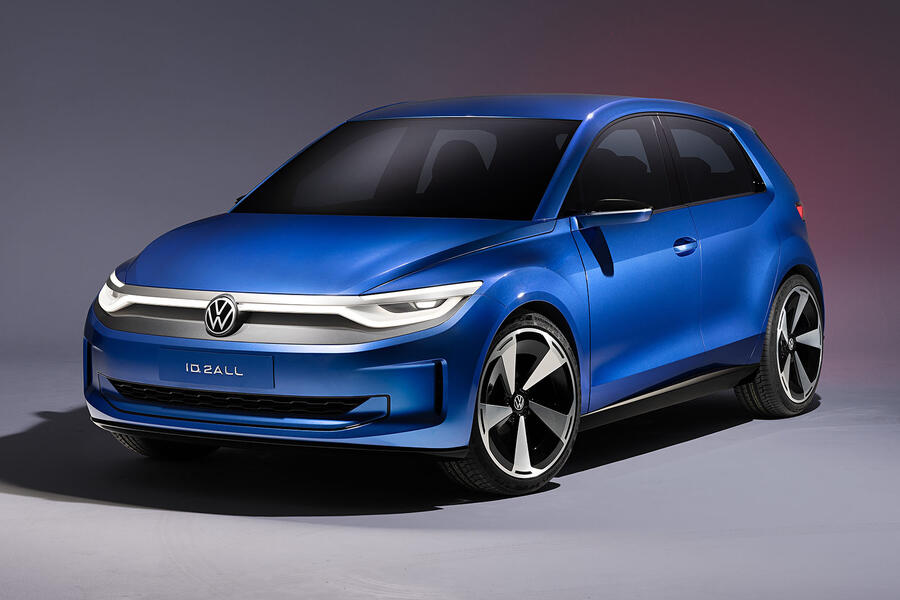It features a 490-litre boot, with 1330 litres of capacity when the rear seats are folded down.
Notably, the MEB Entry platform is front-wheel-drive, while EVs built on the existing MEB platform offer rear-wheel-drive and four-wheel-drive powertrains. The front-mounted motor will produce 223bhp, and the ID 2all has a claimed range of up to 280 miles.
The decision to switch the platform to front-wheel-drive was to maximise the space available for luggage, enabling that large boot.
The platform can accept two battery sizes – 38kWh and 56kWh – each of which use different battery cell technology. While that maximum claimed range of 280 miles is for the 56kWh unit, the entry-level £22,000 ones will feature the smaller battery.
Volkswagen describes the drivetrain, battery and charging technology as “particularly efficient”. While the 38kWh batteries will use lithium-iron-phosphate prismatic cells, the firm has yet to disclose the chemistry of the later unit.
Volkswagen claims the 58kWh battery in the ID 2all will be able to complete a 10-80% charge in around 20 minutes, and will have a maximum charging rate of 125kW.
The car has a top speed of 99mph and a 0-62mph time of less than 7.0sec.
Mindt said Volkswagen is “transferring the DNA of our icons into the future”, adding that the ID 2all is “therefore also an homage to the Beetle, Golf and Polo.” He said it shows how future VWs will build on three design pillars: stability, likeability and excitement.
Classic cues include a C-pillar design intended to evoke the Mk1 Golf, which builds on « a general feature of compact Volkswagen models ». Mindt has also reduced the volume above the wheels in order to give the car a more powerful stance on the road.











